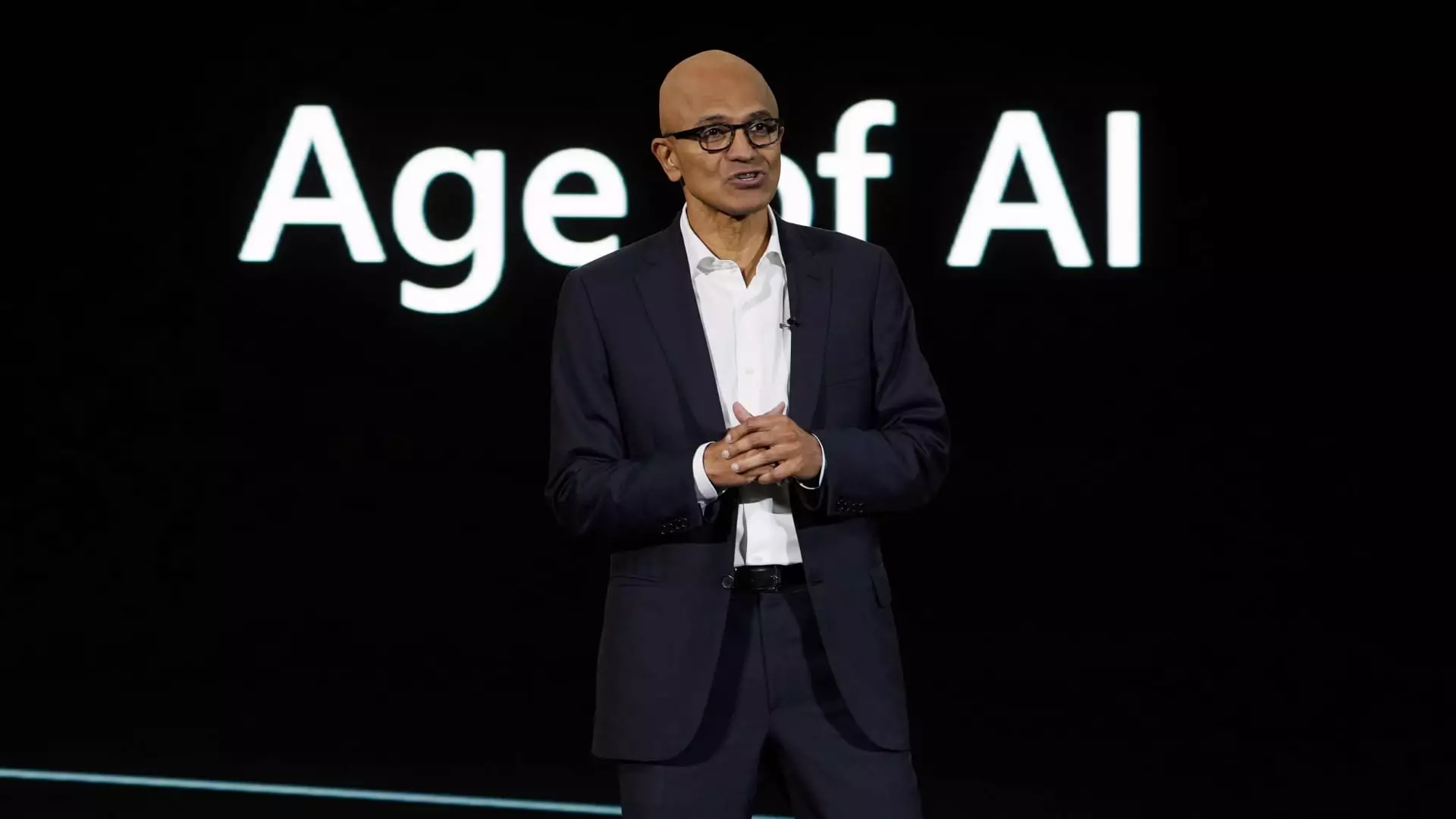As the race to develop robust artificial intelligence (AI) technologies accelerates, the question of how to power these energy-hungry data centers has become increasingly complex. With Microsoft’s recent remarks about possibly utilizing natural gas paired with carbon capture technology for its AI data centers, a salient discussion is emerging around the viability and ethical implications of integrating fossil fuels in renewable energy agendas. While on the surface, this may appear to be a pragmatic response to the energy-intensive demands of AI, it raises deeper concerns that challenge the environmental narrative.
The outlook for natural gas, often touted as a “bridge fuel,” is not as sunny as some proponents might suggest. For all of its touted benefits—namely the lower carbon emissions compared to coal—natural gas extraction and transportation bear their own environmental footprint. The process of hydraulic fracturing, or fracking, is notoriously harmful to local ecosystems and has long-term repercussions for water quality. Thus, the promise of clean energy that comes from natural gas with carbon capture begins to unravel when viewed through this critical lens.
The Technological Paradox
Bobby Hollis, Microsoft’s Vice President of Energy, openly admitted that any deployment of natural gas must be “commercially viable and cost-competitive.” This raises eyebrows, especially when past attempts to implement carbon capture technology have faltered due to exorbitant costs. It’s not just about finding a stopgap solution; it’s about safeguarding our planet’s future. The argument that natural gas is a “near-term solution” for powering AI technologies fails to account for the robust advancements in renewable energy sources. Companies like Microsoft, which have already made significant strides toward carbon neutrality, risk contradicting their own commitments by entertaining fossil fuel solutions.
In a bid to balance practicality with ambition, Microsoft has started exploring other avenues, including nuclear energy, evidenced by its deal to support the restart of the Three Mile Island facility. However, the bottleneck of regulatory hurdles and public skepticism means that nuclear power is unlikely to meet immediate energy needs. The unforeseen decisions regarding energy sources reflect a corporate struggle caught between innovative aspirations and the ghosts of yesteryear’s energy models.
Political Landscape Influencing Energy Choices
The prevailing political attitudes, particularly those encouraged by the Trump administration towards natural gas, play a critical role in shaping corporate energy strategies. With an emphasis on accelerating fossil fuel projects, the pressure mounts on tech enterprises to align with governmental dictates. This dependence on political luminaries to drive energy innovation does more than compromise corporate ethics; it risks sidelining cleaner, more sustainable options in favor of outdated frameworks.
Exxon Mobil and Chevron’s foray into the data center space exemplifies this dynamic, as they announce initiatives to develop natural gas plants armed with carbon capture technology. This may appear as strategic adaptability, yet it also underscores a troubling complacency regarding renewable alternatives that are “ready to go right now.” When industry titans use their clout to influence energy policy, we must ask: Are we truly investing in the future, or merely propping up antiquated systems?
Market Pressures and Economic Realities
The economic implications of transitioning to these fossil fuel-based solutions cannot be ignored. Costs for developing new natural gas plants have tripled over recent years, extending project timelines into 2030 and beyond. In contrast, renewable energy technologies are no longer at a nascent stage; they are ready to fulfill market demands and are often cheaper than fossil fuel options. This dichotomy raises uncomfortable questions about the motivations driving the push for natural gas: are we genuinely pursuing energy sustainability or simply seeking the path of least resistance?
Leaders like NextEra CEO John Ketchum emphasize that renewables are equipped to meet immediate energy demands, casting doubt on the practicality of natural gas. While the logic of using natural gas seems appealing to some, it may ultimately hinder long-term advancement toward a sustainable energy infrastructure, particularly in the tech sector where sustainability is increasingly becoming a corporate imperative.
The conversation surrounding energy solutions for AI must shift from short-term fixes to sustainable, innovative practices. As we stand on the precipice of a new technological era, the choices we make in powering that age will leave an indelible mark on our planet’s future.

